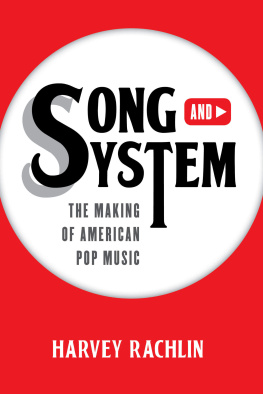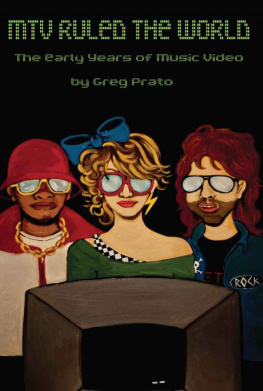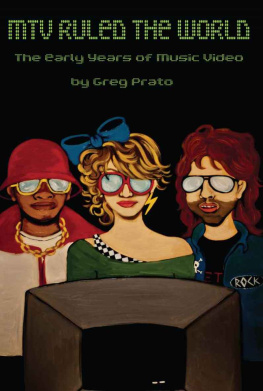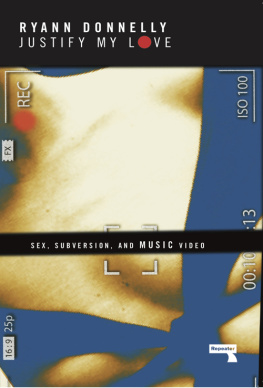
MONOPOLY TELEVISION
Critical Studies in Communication and in the Cultural Industries
Herbert I. Schiller, Series Editor
Monopoly Television: MTV's Quest to Control the Music, Jack Banks
The FAIR Reader: An Extra! Review of Press and Politics in the '90s, edited by Jim Naureckas and Janine Jackson
Communication and the Transformation of Economics: Essays in Information, Public Policy ; and Political Economy, Robert E. Babe
A Different Road Taken: Profiles in Critical Communication, edited by John A. Lent
Consumer Culture and TV Programming, Robin Andersen
Marketing Madness: A Survival Guide for a Consumer Society, Michael F. Jacobson and Laurie Ann Mazur
Public Television for Sale: Media, the Market, and the Public Sphere, William Hoynes
Counterclockwise: Perspectives on Communication, Dallas Smythe (edited by Thomas Guback)
The Panoptic Sort: A Political Economy of Personal Information, Oscar H. Gandy, Jr.
Triumph of the Image: The Media's War in the Persian Gulf- A Global Perspective, edited by Hamid Mowlana, George Gerbner, and Herbert I. Schiller The Persian Gulf TV War, Douglas Kellner
Mass Communications and American Empire, Second Edition, Updated, Herbert I. Schiller
FORTHCOMING
The Social Uses of Photography: Images in the Age of Reproducibility, Hanno Hardt
Introduction to Media Studies, edited by Stuart Ewen, Elizabeth Ewen, Serafina Bathrick, and Andrew Mattson
Invisible Crises, edited by George Gerbner, Hamid Mowlana, and Herbert I. Schiller
The Communications Industry in the American Economy, Thomas Guback
Hot Shots: An Alternative Video Production Handbook, Tami Gold and Kelly Anderson
Ideology, Government Broadcasting, and Global Change, Laurien Alexandre
Monopoly Television
MTVs Quest to Control the Music
Jack Banks
Critical Studies in Communication and in the Cultural Industries
First published 1996 by Westview Press
Published 2018 by Routledge
711 Third Avenue, New York, NY 10017, USA
2 Park Square, Milton Park, Abingdon, Oxon OX14 4RN
Routledge is an imprint of the Taylor & Francis Group, an informa business
Copyright 1996 Taylor & Francis
All rights reserved. No part of this book may be reprinted or reproduced or utilised in any form or by any electronic, mechanical, or other means, now known or hereafter invented, including photocopying and recording, or in any information storage or retrieval system, without permission in writing from the publishers.
Notice:
Product or corporate names may be trademarks or registered trademarks, and are used only for identification and explanation without intent to infringe.
Library of Congress Cataloging-in-Publication Data
Banks, Jack.
Monopoly television: MTVs quest to control the music / Jack
Banks.
p. cm. (Critical studies in communication and in the
cultural industries)
Includes bibliographical references and index.
ISBN 0-8133-1820-3 (hc.) ISBN 0-8133-1821-1 (pbk.)
1. Rock videosUnited States. 2. MTV Networks. I. Title.
II. Series.
PN1992.8.M87B36 1996
384.55'51dc20 96-2163
CIP
ISBN 13: 978-0-8133-1821-9 (pbk)
Even though I sometimes think of myself as the Lone Wolf toiling away in isolation, many people, whom I want to acknowledge, have helped me with this book along the way.
Diane Prusank, the graduate director of the School of Communication at the University of Hartford, regularly provided me with research assistants who were helpful in the preparation of this manuscript. Mary Lawrence and Melissa Gettins were graduate research assistants who did much library research for me with speed and accuracy, checking facts and hunting down needed information about references, names, and figures.
John Dlugosz, T. J. Feldman, and Mary Lawrence, graduate students at the University of Hartford, all provided useful and thoughtful critiques of the book. Margaret Bennett, a lifelong friend, contributed valuable comments with a critical edge. I also had enlightening conversations with Nancy Breaux, a scholar and musician, about the role of popular music in society.
The members of my dissertation committee at the University of Oregon, Deanna Robinson, Janet Wasko, Carl Bybee, and Val Burris, offered thoughtful insights and criticisms on an earlier version of this manuscript, helping me to further clarify arguments. I was enriched by knowing the faculty and graduate students in the old Telecommunication and Film program at the University of Oregon, who constituted an intellectually vibrant, politically aware, and morally conscientious community of critical media scholars whose company I miss. My thinking about music video and media industries more generally has been greatly influenced by critical scholars including Dan Schiller, Herb Schiller, Vincent Mosco, Graham Murdock, Thomas Guback, Ben Bagdikian, and Ed Herman.
Several people at Westview Press were instrumental in seeing this book through various stages to its completion, most notably Gordon Massman, David Jenemann, Jane Raese, Linda Carlson, and Jim Grode. Everyone at Westview was always helpful, kind, and professional.
My mother, Deanna Banks, has been wonderfully supportive and understanding throughout this project. And finally, Mike Silverman has always been there for me, providing continual encouragement and constantly keeping me up to date with what and who was on MTV when I just could not watch it anymore.
Yet although I have been influenced by many, the arguments in this work are my own and I take responsibility for my occasionally less than flattering portrait of MTV, record companies, and the music video business.
Jack Banks
1
Constructing Video Dreams: Music Video in a Commercial Culture
MTV: Music Television was launched in August 1981 as a twenty-four-hour cable program service presenting an endless stream of music videos, short visual productions featuring current pop and rock songs. As MTV's popularity increased throughout the decade, music video had a pronounced impact on popular culture in the United States, influencing most major media and stimulating demand for a wide range of consumer products. In the early 1980s, music video revitalized a troubled record industry by prompting renewed consumer interest in pop music and successfully developing several new recording acts such as Madonna, Boy George, Cyndi Lauper, and Duran Duran, who adeptly showcased their provocative visual images in this new media form. Music video has since become an indispensable means of promotion for recording artists, who are expected to have accompanying videos for their songs in order to become commercially successful.
MTV's influence gradually infiltrated traditional television shows on the commercial broadcast networks. Miami Vice (originally titled MTV Cops by network executives) prominently featured current pop music and adopted the flashy visual style of music videos. Even some network television news shows like 48 Hours regularly presented stories that incorporated the pulsing music and frenetic editing characteristic of music clips.music. Beyond its influence on various media, music video also stimulated consumer purchases in several markets, most notably in fashion apparel. MTV and music videos frequently establish fashion trends by showcasing in music clips the avant-garde clothing worn by performers, which provides a shopping guide for style-conscious consumers. MTV's reach extended into the realm of politics with its extensive coverage of the 1992 presidential campaign, which included interviews with prominent candidates including Bill Clinton.













